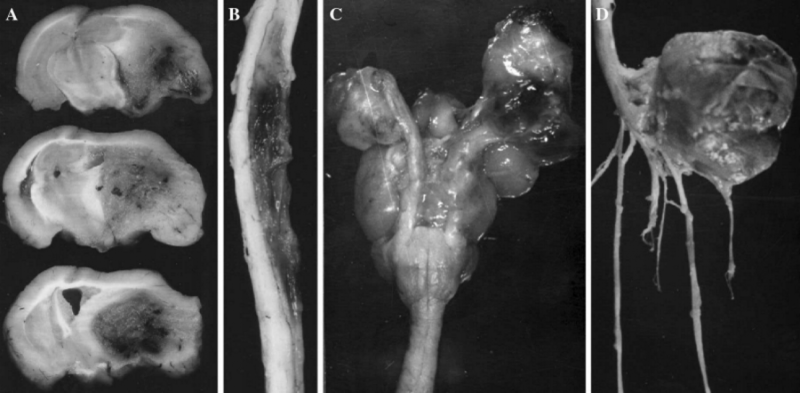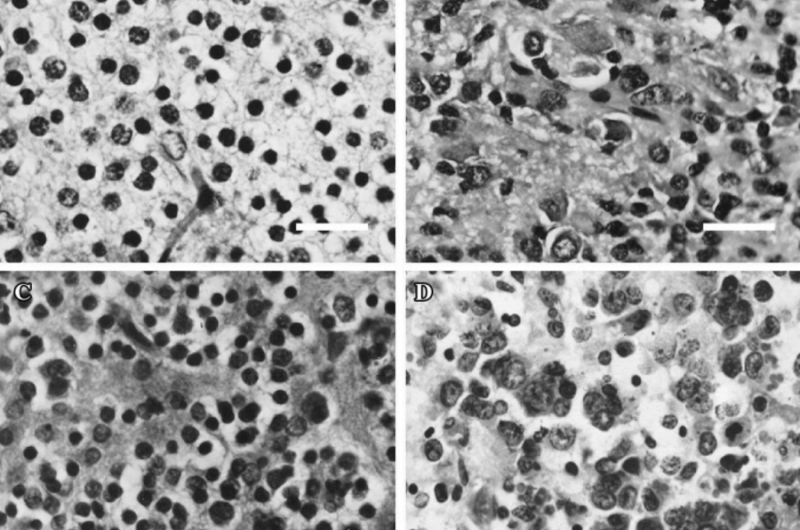Meadowsweet decoction showed its activity in cancer preventing

Artificially increasing risks of rodents for developing cancer, researchers proved that those given a meadowsweet decoction instead of water had reduced numbers of brain and spinal cord tumors by two and three times respectively. According to the scientists, the work opens a new research path in the field of natural cancer inhibitors. The experiment results were reported in Journal of Neuro-Oncology.
Nervous system cancers mostly affect children. Growths in the brain and spinal cord are the second-most frequent in pediatric oncology. Until now, no medications to prevent the development of these tumors exist. But the new study carried out by the staff of N.N. Petrov Research Institute of Oncology and collaborators showed that meadowsweet decoction may be used as the basis of a diet for preventing nervous system cancer.
Meadowsweet is a perennial herb growing in forests of the Northern Hemisphere. For a long time, decoctions and ointments made of this plant have been used in folk medicine as antiseptic, anti-inflammatory and anti-toxic agents. In the study, the researchers used a decoction of small yellow-white meadowsweet flowers.
With this decoction, the scientists managed to significantly inhibit developing nervous system tumors in rats. "Thanks to the high concentration of flavonoids and salicylates, meadowsweet stands out from other herbs and synthetic drugs we studied earlier. Its number of active components compares even with green tea, but meadowsweet is caffeine-free. In addition, meadowsweet is safe for long-term consumption, while synthetic substances that selectively suppress cancer, can cause deafness, disrupt the growth of healthy cells or even stimulate tumor development in other organs," notes Vladimir Bespalov, professor of ITMO's Department of Food Biotechnology.
To test the inhibitory activity of meadowsweet, the scientists developed a rat generation with a high risk of nervous system cancer. The researchers used a method of transplacental carcinogenesis. The researchers selected several pregnant rats, and the day before childbirth, injected them with ethylnitrosourea. This mutagenic and carcinogenic substance penetrates the placenta and is absorbed by the fetus, provoking tumor growth in the nervous system.
Three weeks after birth, the babies were divided into two groups of about 60 rats. The first group got usual food and drink, but the second was given the decoction of meadowsweet flowers instead of water. To create perfect conditions for experiment, the scientists randomly chose 87 rat pups whose mothers had not been injected with the carcinogen as the third control group.

During the next two years, the researchers examined the animals daily, weighing them and identifying new tumors. Thirty-eight percent of rats from the control group had tumors, but none of them affected the nervous system. By contrast, most tumors found in rats from groups one and two developed in these organs. All the first-group rodents got cancer, often multiple types. Among the total tumor number in this group, 86 percent occurred in the brain and 43 percent in the spinal cord. Twenty-nine percent were found in peripheral nerves, and 31 percent in the kidneys. In the second group, the tumor incidence fell by two times in the brain, and by three times in the spinal cord.
In general, the meadowsweet decoction reduced the number of rats with tumors in various organs by 1.2 times and increased the time until the first signs of cancer. Denis Baranenko at ITMO University says, "Our results are really impressive, but they are not enough to recommend meadowsweet to people. Firstly, we should carry out additional experiments to examine safe and effective dosages for different population groups. Our next step is to create a special food for cancer preventing to prove their efficiency and safety scientifically."
More information: Vladimir G. Bespalov, Valerij A. Alexandrov, Galina I. Vysochina, Vera А. Kostikova, Denis A. Baranenko (2016), The inhibiting activity of meadowsweet extract on neurocarcinogenesis induced transplacentally in rats by ethylnitrosourea, Journal of Neuro-Oncology, DOI: 10.1007/s11060-016-2323-6














